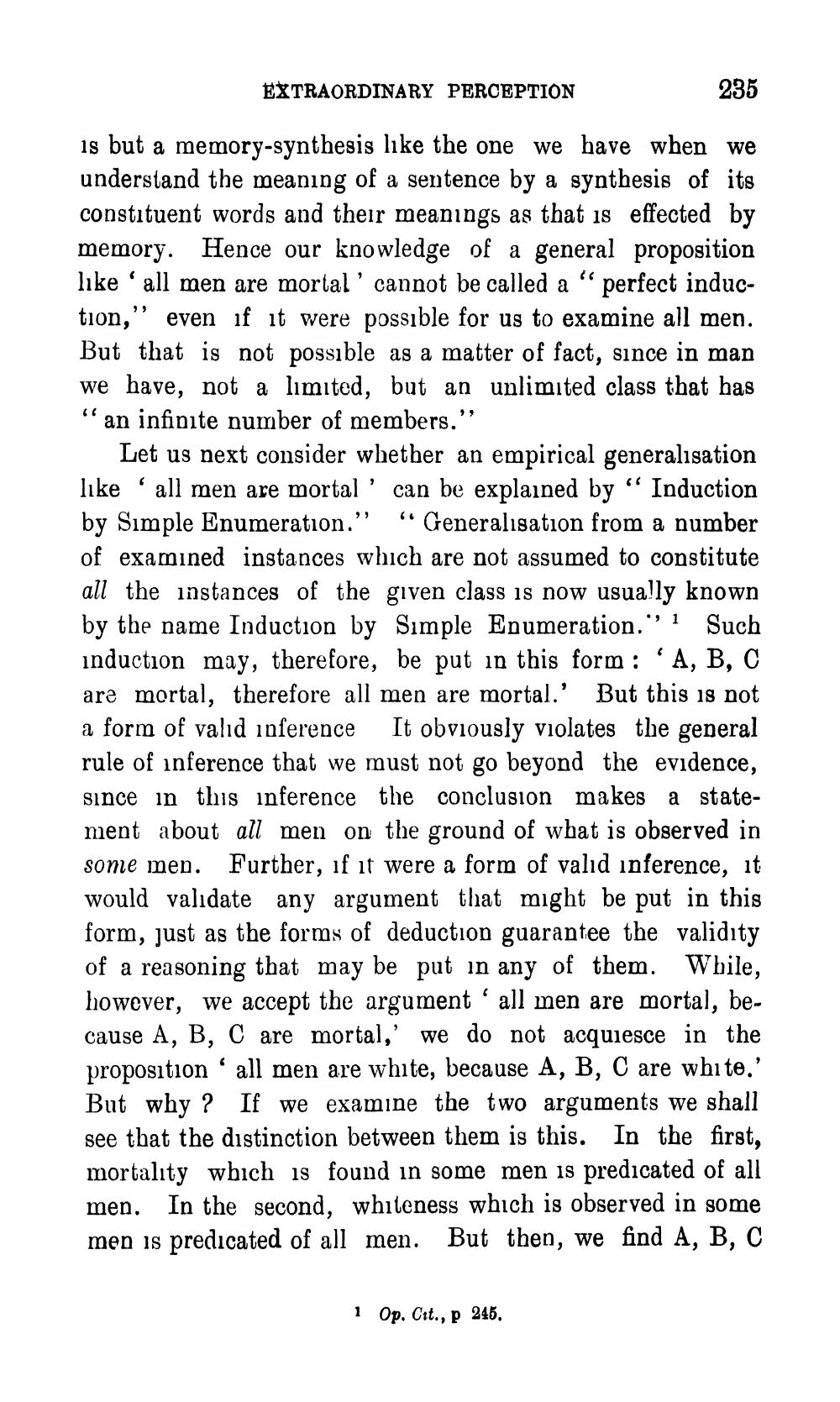________________
EXTRAORDINARY PERCEPTION
235
is but a memory-synthesis like the one we have when we understand the meaning of a sentence by a synthesis of its constituent words and their meanings as that is effected by memory. Hence our knowledge of a general proposition like 'all men are mortal' cannot be called a "perfect induction," even if it were possible for us to examine all men. But that is not possible as a matter of fact, since in man we have, not a limited, but an unlimited class that has "an infinite number of members."
Let us next consider whether an empirical generalisation like 'all men are mortal’ can be explained by “ Induction by Simple Enumeration.” “Generalisation from a number of examined instances which are not assumed to constitute all the instances of the given class is now usually known by the name Induction by Simple Enumeration."' 1 Such induction may, therefore, be put in this form : 'A, B, C are mortal, therefore all men are mortal.' But this is not a form of valid inference It obviously violates the general rule of inference that we must not go beyond the evidence, since in this inference the conclusion makes a statement about all men on the ground of what is observed in some men. Further, if it were a form of valid inference, it would validate any argument that might be put in this form, just as the forms of deduction guarantee the validity of a reasoning that may be put in any of them. While, however, we accept the argument 'all men are mortal, because A, B, C are mortal,' we do not acquiesce in the proposition ' all men are white, because A, B, C are white.' But why? If we examine the two arguments we shall see that the distinction between them is this. In the first, mortality which is found in some men is predicated of all men. In the second, whiteness which is observed in some men is predicated of all men. But then, we find A, B, C
1 Op. Cit., p 245.




